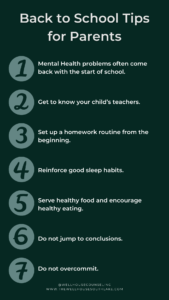Collaborative Counseling in Southlake, Texas
The Well House Group is a boutique counseling practice located in Southlake, Texas. We are conveniently located near the Dragon Stadium and Highway 114. Our counselors serve all people, from infants to adults. We offer a collaborative model of counseling that takes a holistic view of healing. With collaborative counseling, we take into account all members of a family system in order to encourage healing for all. We have a diverse group of counselors whose specialties, experiences, and personalities have been strategically brought together to treat a wide variety of needs. With the collaborative model, individual therapy and family therapy can happen in the same practice, and possibly, at the same time. No need to travel around town to find all your specialists. At The Well House Group, we have them all under one roof.
What is collaborative counseling?
 Collaborative counseling provides a holistic view of counseling. Often, people seek counseling because they are feeling anxious or depressed. Traditional counseling treats the individual and may occasionally make a referral to a different practice for family or couples therapy.
Collaborative counseling provides a holistic view of counseling. Often, people seek counseling because they are feeling anxious or depressed. Traditional counseling treats the individual and may occasionally make a referral to a different practice for family or couples therapy.
Collaborative counseling takes the guesswork out of healing. With collaborative counseling, you will see your individual counselor as well as other counselors based on your needs (family therapy, parent coaching, or couples counseling are a few popular ones). With a collaborative approach, a team of specialists will work together to help you reach your mental health goals. Your specialists are experts at collaboration and communication and will skillfully help you reach your goals.
From the moment you reach out to our intake specialist, great care is taken to make sure you are appropriately placed with the right counselor and the right team. We take an extensive history and will often refer couples or families to work with other Well House Counseling Specialists. We find that the collaborative model treats the entire family system unit and is the best and quickest way to bring about positive, meaningful change.
How does it work?
When working with your counselor, they may notice themes or pain points in your other relationships or families. Your counselor will discuss these observations with you and will make a recommendation for additional collaborative sessions. The recommendation is often for parent coaching, family therapy, or couples counseling. Your counselor will identify goals and will schedule you with the collaborating counselor. The collaboration doesn’t stop there. The Well House team meets weekly to discuss treatment plans for all collaboration clients. When collaboration is done this way, we can tailor treatment goals to meet the needs of the individuals and the collective in order to bring about lasting change.
What issues can it help?
Collaborative counseling can be helpful for a wide variety of concerns. Since the collaborative model takes the entire system into consideration, it is a flexible treatment modality that can be tailored for just about any need. We commonly help individuals and families with the following concerns:
Marital dissatisfaction
Infidelity
Parenting concerns
Counseling for Teens
Self-harm
Anxiety
Depression
Family dynamics
Post-Partum Depression and Anxiety
Communication struggles in relationships
Trauma and PTSD
Play Therapy
How do I know if Collaborative counseling is right for me?
If you have ever thought that your family dynamic was affecting your stressed teen. Or maybe your teen’s behavior is affecting your family dynamic. Collaborative counseling can help. We do not exist in a vacuum. In fact, when one member of the family is struggling, all members are effected. The same thing applies to healing. When one member of the family begins to heal, all members are effected. It is much easier to achieve mental health when everyone in your family unit is getting help. Even if all family members are not interested in mental health healing, there are ways that a holistic view can support a healing journey. To bring it back to the original examples, Individual counseling for your teen or child can help your child grow and develop their mental health skills. Meanwhile, Family counseling and/or parent coaching can help the family deal with the challenges that arise from the interactions with their teen.
If you struggle with depression and your marriage feels hard, then collaborative counseling can help you tend to the depression while also addressing the needs of your relationship.
You can work through your own thoughts and goals with your individual therapist. Meanwhile, your couples therapist will help you achieve a more fulfilling and harmonious relationship; and both therapists will regularly consult to make sure they are all working towards the same goals.
If you have made a big, life decision that feel great but your family isn’t quite on board, collaborative counseling can help. You can work with your individual counselor to process all the changes. Meanwhile, a family therapist can work with you and your family together to navigate the tough conversations. This approach supports both you and your family. Collaborative counseling can help everyone through the changes.
How does Collaborative Counseling differ from Traditional counseling?
 On the surface, collaborative counseling looks a lot like traditional counseling. You will form a close, trusting relationship with your counselor and you will rely on their expertise to hold space for you and to help you navigate towards your mental health goals.
On the surface, collaborative counseling looks a lot like traditional counseling. You will form a close, trusting relationship with your counselor and you will rely on their expertise to hold space for you and to help you navigate towards your mental health goals.
With traditional counseling, if you need additional support (parent coaching, couples counseling, or family therapy), your counselor may provide these services themself or they may refer you to another therapist in a different practice. If your counselor chooses to provide these additional services themselves, it can make it difficult to keep their roles separate. If you are referred to an outside therapist, it can be hard for the two counselors to communicate which will make it hard for all counselors to work towards a unified goal.
With The Well House’s collaborative method, you can see different specialists who are all under the same roof. Each counselor has a different specialty and perspective which makes it easy for us to treat a wide variety of needs. From the first intake call, you will receive a high level of care tailored to your unique needs. We are particular about how we pair counselors and clients, and we are particular with how we continue to provide individualized care. To that end, Well House counselors meet regularly to consult and to create tailored treatment plans. You can rest easy knowing that you have an entire mental health team working towards you goals.
Frequently Asked Questions About Collaborative Counseling:
What results can I expect from a collaborative approach?
Since collaborative counseling streamlines the wellness process, you can expect seamless communication and streamlined goals. Results can manifest quickly when all members of a family unit are getting help.
What if I don’t want a collaborative approach?
That is okay! You are always in charge of your healing process. If you are not ready to involve other members in your healing or you are not interested in other services, that’s just fine by us. We have many clients who just come for individual sessions and we would never pressure anyone to receive services that they are not ready for.
Do I have to request a collaborative session?
Not necessarily, but you can if you want. In general, when your counselor thinks that collaboration will be helpful, she will recommend and help you get your collaborative session scheduled.
How can I get started?
If you are interested in starting counseling, call or email us today. Our intake specialist will take the time to learn about your needs and preferences and will schedule you with the counselor or team who best meets your needs.

 Anxiety in small doses is a part of everyday life as humans. It was a part of our survival instinct that kept our ancestors alive. According to the
Anxiety in small doses is a part of everyday life as humans. It was a part of our survival instinct that kept our ancestors alive. According to the  Box breathing can also be called four-square breathing. This is a simple breathing practice that can feel comfortable and calming. Follow these simple directions:
Box breathing can also be called four-square breathing. This is a simple breathing practice that can feel comfortable and calming. Follow these simple directions:
 The biggest misconception about how to communicate in a relationship is that communication is the same as talking or making conversation. Communication in partnerships, at its core, is about connecting with your spouse to offer support and to understand their point of view. Below are some helpful tips for communicating with your partner.
The biggest misconception about how to communicate in a relationship is that communication is the same as talking or making conversation. Communication in partnerships, at its core, is about connecting with your spouse to offer support and to understand their point of view. Below are some helpful tips for communicating with your partner. It can be tough to hear criticism and not become defensive. It is helpful to remember that your partner is trying to communicate how your behavior is making them feel. Even if your partner isn’t using those words, try and pull out how they are feeling. When you can connect and talk about their experience, it will be easier to connect and find a mutual solution.
It can be tough to hear criticism and not become defensive. It is helpful to remember that your partner is trying to communicate how your behavior is making them feel. Even if your partner isn’t using those words, try and pull out how they are feeling. When you can connect and talk about their experience, it will be easier to connect and find a mutual solution. If your partner is not interested in learning how to improve their communication skills, that is okay. It does not mean that your relationship is doomed. Rather, you are just the first person to make the decision to improve aspects of the relationship. Since the goal of effective communication is mutual understanding, you can help make communication feel easier by practicing clear verbal and non-verbal skills and demonstrating good listening skills. By doing this, you will diffuse the situation and create a more harmonious atmosphere for communication to occur. Of course, boundaries and reciprocal attention are important in a partnership. It may be helpful to enlist the help of a counselor to ensure that you are not creating or maintaining unhealthy relationship patterns.
If your partner is not interested in learning how to improve their communication skills, that is okay. It does not mean that your relationship is doomed. Rather, you are just the first person to make the decision to improve aspects of the relationship. Since the goal of effective communication is mutual understanding, you can help make communication feel easier by practicing clear verbal and non-verbal skills and demonstrating good listening skills. By doing this, you will diffuse the situation and create a more harmonious atmosphere for communication to occur. Of course, boundaries and reciprocal attention are important in a partnership. It may be helpful to enlist the help of a counselor to ensure that you are not creating or maintaining unhealthy relationship patterns.



 The months leading up to birth are full of preparation. Rooms are made ready, maternity leave arranged, and you may even prepare your body with prenatal vitamins. If you have experienced depression or postpartum depression previously then you are at a greater risk of developing postpartum depression. This is a good time to learn how you rest and recharge. Work on communication with your partner and practice asking for & accepting help. When the baby comes, these skills will be helpful.
The months leading up to birth are full of preparation. Rooms are made ready, maternity leave arranged, and you may even prepare your body with prenatal vitamins. If you have experienced depression or postpartum depression previously then you are at a greater risk of developing postpartum depression. This is a good time to learn how you rest and recharge. Work on communication with your partner and practice asking for & accepting help. When the baby comes, these skills will be helpful.
 Here at The Well House Group, we are here for you in every part of life’s journey. Whether you are a new mom or you have been down this road before, we are here to provide you with the tools and support to create your best life.
Here at The Well House Group, we are here for you in every part of life’s journey. Whether you are a new mom or you have been down this road before, we are here to provide you with the tools and support to create your best life.  With academic coaching at The Well House, we utilize a solution-oriented approach. We focus on the realistic goals that you set for yourself to create a path for success. When tackling a load of classwork, social pressures, and extracurriculars; it can feel like you are climbing a growing wall. As you are tackling one task, it seems like three more are coming your way including grades, parental expectations, and the demands of higher education.
With academic coaching at The Well House, we utilize a solution-oriented approach. We focus on the realistic goals that you set for yourself to create a path for success. When tackling a load of classwork, social pressures, and extracurriculars; it can feel like you are climbing a growing wall. As you are tackling one task, it seems like three more are coming your way including grades, parental expectations, and the demands of higher education. Classwork can become overwhelming quickly. Unfortunately, when we are overwhelmed, it is easy to procrastinate while panicking. This snowballs to create an even bigger stressor every time you think about it. The good news is, that stress is manageable when you are working with a counselor. They are there to teach you ways to manage your academic-related stressors.
Classwork can become overwhelming quickly. Unfortunately, when we are overwhelmed, it is easy to procrastinate while panicking. This snowballs to create an even bigger stressor every time you think about it. The good news is, that stress is manageable when you are working with a counselor. They are there to teach you ways to manage your academic-related stressors. When you feel buried by all the work and information that school flings your way, it is easy to lose interest entirely and want to give up. Giving up may seem easy at the time, but it makes for hardships later on. This is the time to reach out to people you trust to let them know how you are feeling. It can make it even worse to feel alone and discouraged. Reaching out to those people doesn’t make you weak or dumb. It means you are taking back control of your life and the way you feel.
When you feel buried by all the work and information that school flings your way, it is easy to lose interest entirely and want to give up. Giving up may seem easy at the time, but it makes for hardships later on. This is the time to reach out to people you trust to let them know how you are feeling. It can make it even worse to feel alone and discouraged. Reaching out to those people doesn’t make you weak or dumb. It means you are taking back control of your life and the way you feel. When commuting with your child when it comes to grades, you are often addressing them in a moment of personal crisis. Here are some tips to let you better communicate. First and foremost, it is better to approach them in an empathetic and non-confrontational manner. They are likely to think that you are only going to be disappointed by their underperformance. When you come to them from a place of understanding, they are more likely to really and truly connect honestly with you.
When commuting with your child when it comes to grades, you are often addressing them in a moment of personal crisis. Here are some tips to let you better communicate. First and foremost, it is better to approach them in an empathetic and non-confrontational manner. They are likely to think that you are only going to be disappointed by their underperformance. When you come to them from a place of understanding, they are more likely to really and truly connect honestly with you. Here in Southlake, TX we have all the resources you can need to get back on your feet. Whether we can help you with stress management strategies, create a better balance in your life, and give you help when deciding the direction for higher education. What’s best about our academic coaching is that we are your partner. As counselors, we are able to address any higher issues that present themselves during our time together. For parents, we also offer
Here in Southlake, TX we have all the resources you can need to get back on your feet. Whether we can help you with stress management strategies, create a better balance in your life, and give you help when deciding the direction for higher education. What’s best about our academic coaching is that we are your partner. As counselors, we are able to address any higher issues that present themselves during our time together. For parents, we also offer  It seems like there is a massive push for everyone to grow up and become an “adult”. Maybe you are finally on your own and it hits you, “I am so not equipped to be here.” Whether you are doing your taxes for the first time or realizing how uncomfortable it is to be on your own, there is no escaping the transition from
It seems like there is a massive push for everyone to grow up and become an “adult”. Maybe you are finally on your own and it hits you, “I am so not equipped to be here.” Whether you are doing your taxes for the first time or realizing how uncomfortable it is to be on your own, there is no escaping the transition from  When leaving college or home, you may find yourself in a new place. Whether you are living an hour or two away from your childhood home or you’ve moved across the country, it’s common to feel isolated in a new place. Finding a way to plug into your community can seem like an impossible task all on your own. A
When leaving college or home, you may find yourself in a new place. Whether you are living an hour or two away from your childhood home or you’ve moved across the country, it’s common to feel isolated in a new place. Finding a way to plug into your community can seem like an impossible task all on your own. A  Are all your friends getting
Are all your friends getting  There are so many things going on in your life right now, and you don’t have to figure it all out on your own. These years are special and full of opportunity, but they aren’t without struggle. The
There are so many things going on in your life right now, and you don’t have to figure it all out on your own. These years are special and full of opportunity, but they aren’t without struggle. The  Whether you are in middle school or high school, there is a huge amount of pressure to perform in a way that sets the path for the rest of your life. If you are stressed out to the point of
Whether you are in middle school or high school, there is a huge amount of pressure to perform in a way that sets the path for the rest of your life. If you are stressed out to the point of  Self-harm is something that makes a lot of people wonder why. Why are they doing this? How could it possibly make them feel better? What am I missing in my teen to make them do this? All of these questions and more are ones that often only your teen can answer for themselves, that is if they even know it themselves. Self-harm is a major sign that they are not able to cope with whatever is going on in their life. That can range from loss to self-hatred to severe anxiety.
Self-harm is something that makes a lot of people wonder why. Why are they doing this? How could it possibly make them feel better? What am I missing in my teen to make them do this? All of these questions and more are ones that often only your teen can answer for themselves, that is if they even know it themselves. Self-harm is a major sign that they are not able to cope with whatever is going on in their life. That can range from loss to self-hatred to severe anxiety.